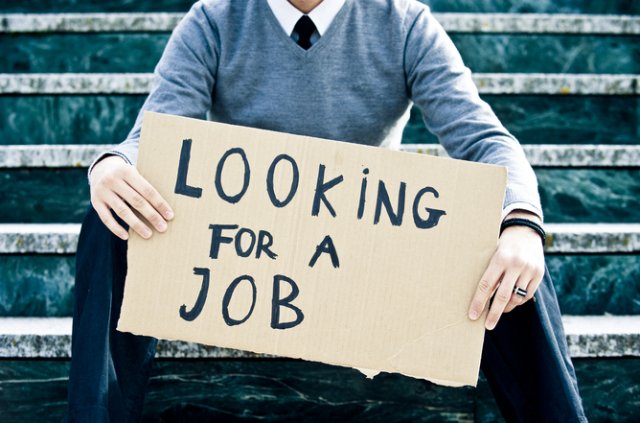
Tony Abbott’s government has backed away from the ludicrous proposal to force unemployed people to apply for 40 jobs a month to receive the paltry Newstart allowance.
The proposal would have generated 30 million job applications a month for the 147,000 jobs available to the 746,000 unemployed. But it was not an attack of common sense that led to the decision — it came after 7000 protesting “cover letters” were sent to Employment Minister Eric Abetz, together with complaints from small businesses that they would be inundated with applications for non-existing jobs.
The federal government has also retreated from another hare-brained idea — shifting the power to punish job-seekers to job agencies. Again, this was in response to job agencies pointing out that their role was supposed to be finding work for the unemployed, not punishing them because they happen to be unemployed.
But to compensate for these “concessions”, the government is extending the Work for the Dole schemes over the three years from July next year. This will require jobseekers aged 30 to 49 to work 15 hours a week and those aged 50 to 60 to do 15 voluntary hours a week of an approved activity.
While Work for the Dole will be mandatory for all unemployed people under 50, the government is still pressing ahead in the Senate with its plan to force young unemployed people to wait for six months before they receive unemployment benefits.
This is at a time when youth unemployment for those aged 15 to 24 is officially at almost 14%, but actually closer to 30% when underemployment is taken into account. This is the highest ever level of youth unemployment since the ABS Labour Force statistics were first collected in 1978.
Those now classed as “inactive” are not included in the statistics and, on one account at least, this excludes 25% of young people who are either on disability support or simply not registered as unemployed.
The number of employed people aged 15 to 24 is now 6% lower than it was at the start of the financial crisis six years ago. In some of the hardest hit regional areas, teenage unemployment is above 50%. Those unemployed in the 20 to 24 age group include a growing number of university graduates.
The Australian Bureau of Statistics has now been forced to abandon the reporting system it was using on unemployment rates after it reported jobs growth of 120,000 in August, a figure so obviously wrong that few believed it.
As a result, the figures for September, released on October 8, are unadjusted. What they show is both an increase in unemployment to 6.1% and a decrease in the participation rate to 64.5%. However it collects its data for future reports, the one thing it will not change is the misleading definition of employment. A person is now considered employed if they work just one hour a week.
Australia’s increasing unemployment now appears to be linked to the trends in the global economy with the end of yet another wasted mining boom. The International Monetary Fund has once again downgraded its overly optimistic growth forecast for this year from 3.5% in April to 3.3%. The actual global growth rate has declined from 5.4% in 2010.
The Abbott government’s response has been to offer state governments a 15% bonus payment for money they put into new infrastructure projects from selling off state-owned assets and to send the Treasurer to New York to try to convince Wall Street to bid for them. In the meantime they will continue to lay the blame for unemployment on the unemployed.
Like the article? Subscribe to Green Left now! You can also like us on Facebook and follow us on Twitter.